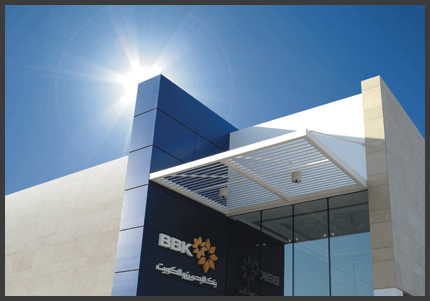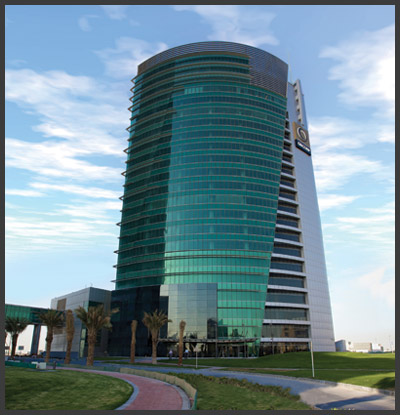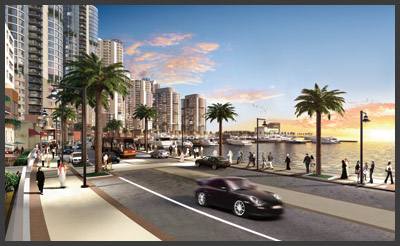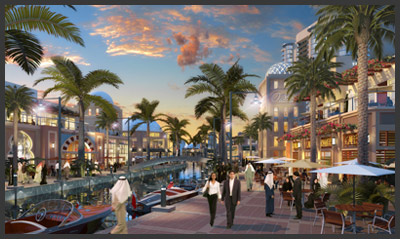Bahrain Banking – The banks, the harbour, and the capital
“Although Bahrain banking have of course been affected by the international crisis, Bahrain Banking has been able, thanks to good capitalization and capital liquidity, to weather the situation nicely in 2008 – 2009” Abdul Karim Bucheery – CEO of BBK
The old proverb “Small is beautiful” fits Bahrain.

The Island, or better the Kingdom consisting of 33 islands, has lived largely of fishing and pearl diving. Today, the country’s biggest pearl is Bahrain Banking.
Home of 417 banks and 172 insurers (as of April 2009), Bahrain and its ruler HH King Hamad bin Isa al-Khalifa would not disagree if someone adds: “Small is also powerful”.
While 2008 became the annus horribilis for most Western financial centers, and even the once solid Swiss banks, Bahrain Banking was still achieving profits, though these profits were lower than in the booming years before.
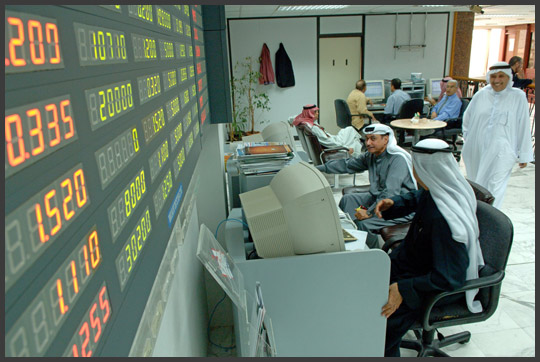
Gulf Finance House (GFH), led by the influential Bahrain family clan Al-Janahi, and United Gulf Bank recorded declines in net profits of 15 and 20 per cent, respectively, but both Bahrain banks remained profitable.
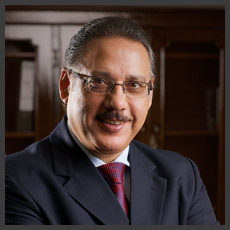
With a return on equity of 3019 percent, Islamic investment bank GFH is still number two in the GCC.
“Although banks in Bahrain have of course been affected by the international crisis, they have been able, thanks to good capitalization and capital liquidity, to weather the situation nicely in 2008”,
says Abdul Karim Bucheery, CEO of Bank Bank of Bahrain and Kuwait (BBK) .
Losses occurred mostly at banks which were involved in the US subprime market, such as Arab Banking Corporation (ABC, loss of $511 million for the second half of 2008) and Gulf International Bank (loss of $396 million).
Awal Bank, part of Saudi Arabia’s Saad Group, established in 2004, had a loss of 19.8 million in 2008 and eventually defaulted in June this year.
Countermeasures have been taken to tackle the crisis and Bahrain banking.
“Since the global financial crisis cast its shadow over the nations of the world, the Government of Bahrain directly moved rapidly to initiate measures to confront the repercussions of the crisis”, H. H. Prime Minister H.H. Shaikh Khalifa bin Salman Al Khalifa says.
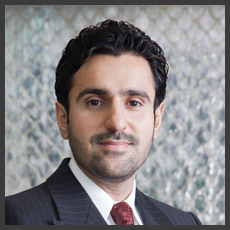
“The Central Bank of Bahrain held several meetings with officials of Bahrain banking institutions in order to agree on mechanisms to face these consequences.”
Other Bahrain banking institutions have been more fortunate. Take GB Corporation, a leading local bank in Bahrain.
“For the financial year 2008, GB CORP announced a total income increase of 8.1 per cent or $53,000,000, and a net profit of $21,000,000 while achieving a return on equity of 12 percent“, recounts Ahmed Al Khan, Head of Investments of GB CORP .
Traditionally conform
Bahrain was the first Gulf country setting up an independent financial regulatory body for its banking industry. In 1973, two years after the Sheikdom achieved independence from UK ruling, the Bahrain Monetary Agency (BMA) was formed.
The BMA continuously adapted international regulatory standards for Bahrain banking, e. g. anti-money-laundering rules or capital requirements under Basel I and Basel II, to mention a few, in stark contrast to other financial centers like Liechtenstein, Monaco or the Cayman Islands—states which long refused to adopt key international regulatory standards until recently.
For Jean-Christopher Durand, the regional director of French bank BNP Paribas, the advantages of being present in Manama are obvious:
“The number one criterion is the quality of the supervising authorities, and the Central Bank of Bahrain has not only an excellent reputation but very good teams, very strong regulations behind them; it’s an institution that is very accessible, very good at dialog, and a very good quality of supervision.”
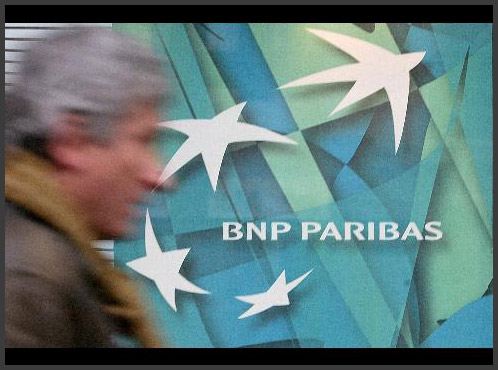
Based on the pioneer role of the Central Bank, competence and know-how are high among Bahraini nationals.
“Advantage number two is that our business, is about people, and building a regional center requires local competencies and the ability to impose specialized competencies. Bahrain is by far the easiest country from that perspective.”
Abdul Karim Bucheery, CEO of BBK, agrees:
“I think Bahrain banking will continue to be the regional hub for the financial sector, because it has the best human resources. If you go to any bank in Bahrain you will see that the majority of people working there—from top to bottom—are nationals. We don’t have to import; we don’t have to look for a long time to find the right people.”
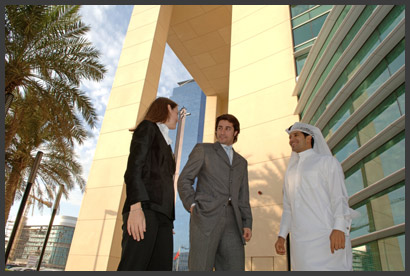
As a result of Bahrain’s banking pioneer role and political stability in a not so stable region, a drive by car down the coast line seems like a random walk down Wall Street.
Bank of Tokyo Mitsubishi, BNP Paribas, Citigroup, HSBC, UBS, and Standard Chartered Bank are all present as part of a long-term tradition in Bahrain.
With Al-Baraka Banking Group, Bahrain also hosts one of the oldest Islamic financial institutions, founded in 19 78, and listed at the Bahrain Stock Exchange (BSE) and the Nasdaq Dubai.
The market for interest-free banking is still growing at 15 per cent per year, despite the financial crisis.

While the financial sector in Germany and Switzerland contribute to the Gross Domestic Product (GDP) at 4 percent and 12 percent, respectively, Bahrain Banking contribute a staggering 27 per to the country’s GDP.
Some 14,000 employees are working in the financial sector. Two thirds of them are Bahraini nationals. This is an exceptional high labour participation of locals in the Gulf.
In the United Arab Emirates (UAE), nationals still comprise less than half of the country’s bank clerks.

But the financial city, as a global hub, is also in need of multilingual talents. The government hopes that not all expatriate families will leave but will look for career opportunities for their children.
Nowadays, expat pupils from all over the world form a vibrant and multicultural young community. “There are French schools, Japanese schools, Philippine schools, English schools etc. So you have a community that looks up to expatriates rather than looks down on them”,
says MD Omar Al Mardi of the BFH Holding Company.
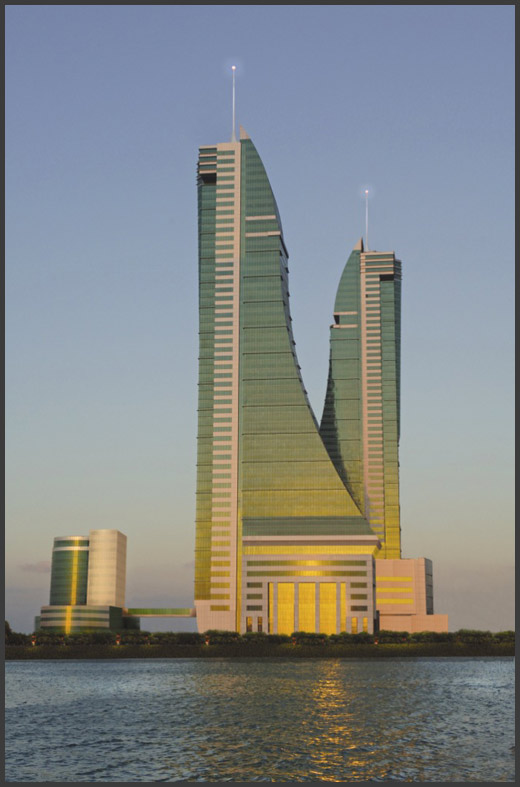
Financial hub in the neighborhood Bahrain Banking
With Bahrain’s total population representing only a seventh of Greater London and with well-known bank logos residing side by side in Manama, Bahrain’s financial sector is like a big family.
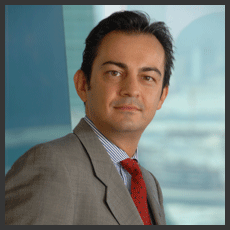 “You could argue that it’s because it’s a small place, and proximity really helps”, says Douglas Hansen-Luke, CEO of Dutch Asset Manager Robeco Middle East.
“You could argue that it’s because it’s a small place, and proximity really helps”, says Douglas Hansen-Luke, CEO of Dutch Asset Manager Robeco Middle East.
“I’m in the world trade centre and there’s probably not a single government ministry which is more than 10 minutes away,” he adds.
The Bahrain International Airport is located just 4km north of the capital Manama. From there it takes less than a twenty-minutes-drive to reach the diplomatic area.
Abdul Razak Al Qassim, CEO of National Bank of Bahrain (NBB), shares Mr. Hansen-Luke’s view: “Proximity and knowledge are the enemies of risk. The closer you are, the more control you have.”
NBB reported fallen profits of 17 per cent last year. As GB Corp’s Al Khan’s sums it up: “Bahrain is doing a very good job by creating a business friendly environment where people can interact with business friendly people.“
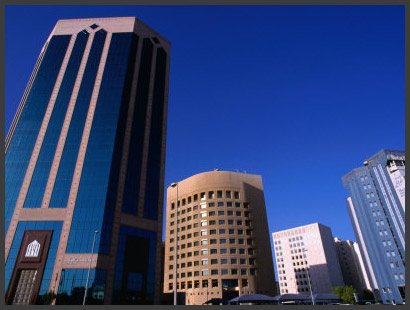
Dr. Jamil El Jaroudi, CEO of Elaf Bank urges the branch not to put all investment eggs into the real estate basket:
“We at Elaf Bank are definitely determined not to become another real estate agent, so we decided to have 30% of our portfolio in real estate, and the rest in other sectors like manufacturing, oil and gas, services, water (which is very important for us). hospital management, etc ”
AtGB CORP, Ahmed Al Khan is more bullish on cement and construction:
“We just launched a mega-project in Bahrain, which is a 2.4 square kilometer real estate deal on the northeast coast of Bahrain. It is strategically located and is going to be a maritime lifestyle city.“
Money talks, just listen “Bahrain Banking“
“It’s not just proximity”, Robeco’s Hansen-Luke stresses, “it’s also willingness and openness of the government to come together.”
Openness in terms of business is guaranteed with the fast and non-bureaucratic way of establishing a business. Openness in relation to culture, however, does not need statistics. A walk through Manama proves this statement. You will find shops and trade marks from all over the world.
Mosques, and Hindu temples, and the only synagogue on the Eastern coast of the Arab peninsula, are symbols of the aforementioned openness. Bahrain is also home of Bank Al Baraka, one of the oldest regulated Islamic Banks of the world.
Founded in 1978, its Chairman Adnan Ahmad Youssef listed the bank’s share at the Nasdaq Dubai, and he expands to rather untapped Islamic finance markets such as Syria, Morocco and Lebanon.
Although restrictive from a conventional point of view, Sharia finance opens doors to new forms of banking which were almost non-existent in the GCC. Leasing is one example.
“There’s really nothing restrictive to leasing”, Greg Brinkerhoff CEO of Bahrain’s First Leasing Bank explains. And he adds:
“Leasing, especially from an Islamic standpoint, or a Shariah-compliant standpoint is extremely Shariah-compliant just as a base structure, never mind the nuances of the documentation. It is the trade of an asset, allowing for the utilization of an asset by a lessor to a lessee.”
So how can leasing be characterized?
“It is more of an asset trade facility as opposed to a pure trading of money facility. And that pure trading of money facility tends to have problems, but leasing in its pure structure has always been easy for compliance purposes, as long as we focus on activities and companies that do not violate any Sharia principles.” Islamic finance knows no boundaries. Greg Brinkerhoff’s Bank has an international client base and posted good results in 2008. Greg Brinkerhoff :
“First Leasing Bank made a net profit of 3 million dollars last year and the bank’s income from financial activity grew to 8.4 million from 3.6 million in 2007. Our total portfolio grew to 142 million from 54 million at the end of 2007. “
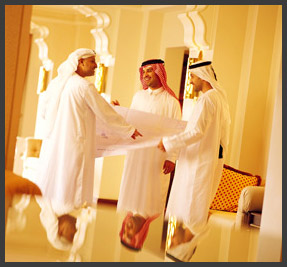
With Sheikh Nizam Yaqubi, one of world’s leading Islamic scholars, comes from Bahrain. Sheikh Nizam consults 46 banks and insurance operators worldwide on how to structure and issue financial products in line with the strict principles of Islamic law, the Sharia.
Among the institutions he consults are banks HSCB, Credit Suisse, and the world’s leading index provider Dow Jones of New York, on its Islamic products. A Dow Jones Islamic Market Index excludes shares of tobacco-, alcohol-, pork-, pornography- and weapons-producers.
Conventional banks and insurers are removed as well, because they charge interest which is unacceptable or ‘haram’ in Islamic law (Sharia). Examples of Sharia-compliant, thus ‘halal,’ blue chips are British Petroleum, Cisco Systems, Coca Cola, Novartis and China Mobile.
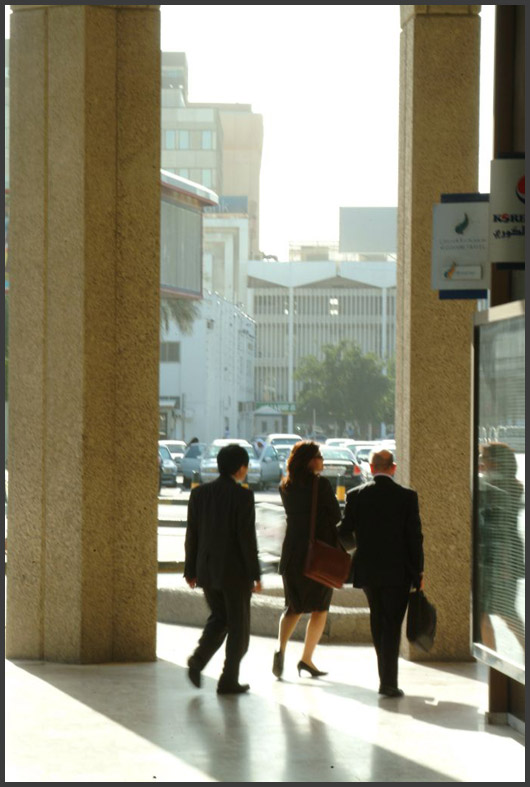
Go East!
Ties between the Arab world and the Far East have been getting closer since 9/11. In order to avoid too much reliance on Western economies, the oil states are reaching out to Beijing as a new partner.
“We have a 20 pe cent holding in Citic International Assets Management Company in Hong Kong, which invests international funds in China”, says Michael Lee, CEO of Islamic bank Ithmaar.
China’s state-owned oil giant, Sinopec, became a major player in the Persian Gulf’s oil fields. State visits between GCC monarchs and China’s president Hu Jintao have become regular.
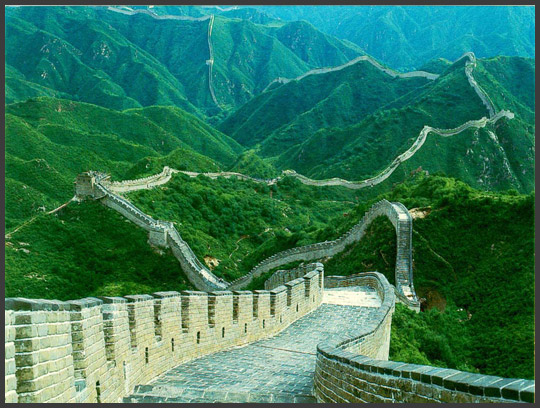
Bahrain’s bank executives agree that the time for looking is ripe. “If everyone is reluctant to invest and go into new ventures, then all the economies will start to be affected,” says Dr. Jamil El Jaroudi, CEO of Elaf Bank.
Edgar de Picciotto, Chairman of Geneva-based UBP says, if he had a good piece of advice for a university graduate today, it would not be “Go West, young man,” as in the 19th century, but rather “Go East, my son”.
It seems in the post-financial crisis era, the sun is rising between the Persian Gulf and China.
tags: Bahrain Banking, Banking in Bahrain
